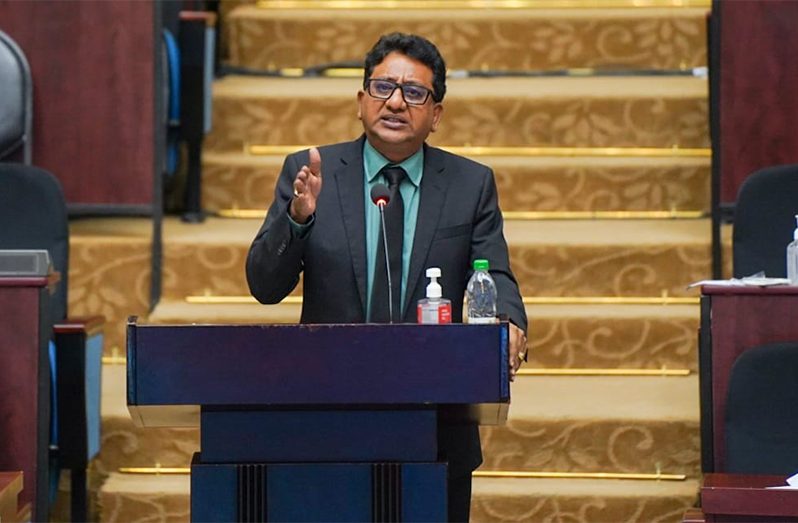THE Foreign Judgement (Reciprocal Enforcement) Bill, which will help Guyana recover repayments against international companies if no local assets are available, was on Monday introduced to the National Assembly by Attorney-General and Minister of Legal Affairs, Anil Nandlall, S.C.
The bill seeks to make provisions for the recognition and enforcement of foreign judgments and to repeal the existing Foreign Judgment (Reciprocal Enforcement) Act, Cap 7:04 and the Judgments Extension Ordinance, Cap. 27.
The bill follows the recent case in which the AG’s chambers secured an ex-parte judgment against Trinidadian company, Davis Ecolife Limited.
Based on the ruling, the company has to repay the $6,159,325 deposit it received from the National Data Management Authority (NDMA) in 2019, for the supply of two prefabricated enclosures to house ICT hubs.
The said agreement – made under the coalition government– had a completion date of January 25, 2019. However, Davis Ecolife Ltd. failed and/or neglected to perform the contract in accordance with the agreed date.
And as part of a major legislative push this year, the government will be seeking to enact new legislation to deal with similar cases.
The Bill establishes a legal framework to allow judgments from Guyana to be enforced in another country.
And once that company has assets in that country, Guyana will be able to recover the proceeds of the judgement in the same way as if the company had assets in the country in which the judgement was granted.
The process typically involves submitting a request for recognition of the foreign judgment to a court in the country where enforcement is sought.
This request must demonstrate that the foreign judgment is final and conclusive, was made by a court with proper jurisdiction, and does not violate public policy in the country where enforcement is sought.
If recognition is granted, the foreign judgment can be enforced in accordance with the laws of the country where enforcement is being sought. This may involve taking additional legal steps such as filing a lawsuit, seeking an injunction or seizing assets.
With Guyana’s burgeoning oil and gas sector and the country’s development making the country a more advanced place of business, it has been contended that updating the country’s archaic laws is necessary.
The bill is intended to promote international trade and investment by providing a more secure legal environment for foreign investors and businesses operating in Guyana. It also reflects Guyana’s commitment to international law and the recognition of foreign judgments.
If passed, the bill will have significant implications on the legal system of Guyana, and might help to attract foreign investment by providing a more predictable and transparent system for investors.



.jpg)








